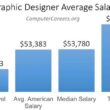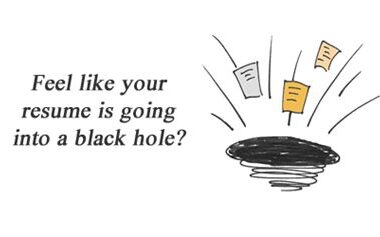Step into the world of mixology and career growth, where crafting cocktails intersects with resume finesse. Whether you’re a seasoned bartender or an aspiring mixer, our guide will lead you to a flawless resume capturing your essence. From basics to format selection, skills showcasing, drafting a compelling summary, to detailing experience, we’ll ensure your resume shines like your signature drink. Let’s shake up your career prospects with expert bartender resume tips. Here’s to your professional future!
Understanding the Basics of a Bartender Resume
When embarking on the journey to craft your bartender resume, understanding its basic structure is akin to memorizing the classic cocktail recipes—fundamental and essential. A well-structured resume serves as the foundation allowing your mixology expertise and professional personality to stand out to potential employers. In this segment of our Bartender Resume Writing Guide, we’ll delve into the key components that constitute the bedrock of an effective bartender resume. From the essential contact information to the impactful professional summary, each part must be mixed with precision and care.
In terms of structure, the bartender resume typically starts with your name and contact details at the top, followed by a concise and engaging professional summary or objective statement. It’s beneficial to see this section as the invitation to your professional narrative, capturing the attention of hiring managers much like an eye-catching garnish on a well-prepared drink. Following this, a well-organized skills section should highlight the specific bar-related competencies—be it knowledge of drink recipes, customer service excellence or inventory management. The experience section showcases your previous job roles and accomplishments, while education and certifications, albeit often brief for bartending roles, demonstrate formal recognition of your skills and knowledge.
Below is a basic outline using HTML formatting:
| Contact Information | Professional Summary | Skills | Experience | Education & Certifications |
|---|---|---|---|---|
| John Doe123 Main StreetCity, State, 12345Phone: (123) 456-7890Email: john.doe@example.com | Dynamic and creative professional bartender with over five years of experience crafting memorable cocktails in fast-paced environments. Adept at customer service, with a proven track record of increasing customer retention. |
|
Bartender, ABC Bar & Grill, City, State (2018-Present) | ABC Bartending School, City, State (Certified Bartender, 2017) |
Remember, these are just the basics of a bartender resume. Your ultimate goal is to mix these essential elements with your unique style and experiences to create a professional profile that’s as compelling as a perfectly balanced cocktail. Keep in mind that while the structure is important, the substance—your work history, achievements, and personality—will truly differentiate your bartender resume and help you land the job. For more comprehensive advice and Bartender Resume Writing Tips, be sure to explore the subsequent sections of our guide.
Choosing the Right Format for Your Bartender Resume
When it comes time to put your mixology and customer service prowess on paper, understanding how to properly format your bartender resume is as crucial as a well-balanced cocktail. Selecting the right resume format not only helps in showcasing your skills and experience but also plays a pivotal role in capturing the attention of hiring managers.
The most common resume formats include chronological, functional, and combination styles. The chronological format lists your work experience in reverse chronological order and is typically recommended for those with a strong and consistent work history. In contrast, a functional resume format emphasizes your skills and abilities, which can be particularly beneficial for those looking to highlight specific bartending skills or for those with gaps in their employment history. Lastly, the combination format, as the name suggests, merges elements of both chronological and functional resumes to provide a comprehensive view of your skills and experience.
- Bartender Resume Writing Tips: Opt for a chronological format if you have a robust history of bartending roles that show career progression.
- Bartender Resume Writing Guide: A functional resume can spotlight your bartending skills set if you’re transitioning to bartending from another field.
- For those who have experience and skills but also some employment gaps, a combination resume might present your credentials in the best light.
Below is a simple table format that can be used to decide which resume type may suit your personal situation:
| Resume Format | Ideal for | Main Focus |
|---|---|---|
| Chronological | Candidates with a strong, consistent work history in bartending | Work History and Career Progression |
| Functional | Candidates with specific bartending skills or those new to the industry | Skills and Bartending Abilities |
| Combination | Candidates with skills and experience but also employment gaps | Blend of Skills and Experience |
Ultimately, choosing the right format for your bartender resume will depend on your individual career path and the attributes you wish to highlight. Take a moment to consider which format will serve you best and remember that a well-structured resume can make a significant difference in landing your next bartending position.
Highlighting Your Bartending Skills Effectively
When creating a bartender resume, it’s essential to understand that your skills section is a cornerstone that can sway a hiring manager’s interest in your favor. This part of the bartender resume is not simply a list of tasks you can perform; rather, it’s a showcase of your flair for mixology, your customer service prowess, and your adaptability in high-pressure scenarios. Let’s delve into some key tips for Highlighting Your Bartending Skills Effectively.
Firstly, consider categorizing your skills into relevant sections to provide clear evidence of your expertise. Within your Bartender Resume Writing Guide, provide subheadings like ‘Mixology & Beverage Knowledge,’ ‘Customer Service & Salesmanship,’ and ‘Efficiency & Multitasking.’ Under each category, list the skills that best illustrate your proficiency in these areas. To help guide you through this process, consider this illustrative table:
| Skill Category | Skills to Include |
|---|---|
| Mixology & Beverage Knowledge |
|
| Customer Service & Salesmanship |
|
| Efficiency & Multitasking |
|
To make your list compelling, integrate specific anecdotes or quantifiable achievements when feasible. For instance, mention a signature cocktail you designed that increased sales by a notable percentage, or describe a stressful event shift where your multitasking skills helped the team deliver impeccable service. Such particulars will offer tangible proof of your abilities and make your bartender resume stand out from the competition. Incorporate these Bartender Resume Writing Tips to craft a document that not only chronicles your career but also champions your potential.
Crafting a Compelling Professional Summary
The Professional Summary is a crucial element of any bartender resume, as it serves as a brief yet powerful introduction to your skills and experiences. This is the section that can capture the employer’s attention and make them interested in reading the rest of your resume. Since bartenders are often the face of an establishment, your summary should not only highlight your mixology skills but also your ability to provide excellent customer service and create a welcoming atmosphere. Below are some Bartender Resume Writing Tips that can help you craft a summary that stands out.
When writing your professional summary, it’s important to tailor it to the specific job you’re applying for, making sure to include keywords from the job description. This means that although you may be a skilled bartender, focusing on your mixology might not be enough if the role also requires strong inventory management skills or the ability to train junior staff. Therefore, your summary should succinctly convey your most relevant skills and experiences, reflecting the unique offerings you bring to the table.
- Start with your professional title and years of experience to establish your expertise—e.g., ‘Seasoned Bartender with over 5 years of experience in high-volume cocktail bars.’
- Include specific skills and traits that are highly valued in bartending, such as ‘Exceptional knowledge of cocktail recipes and flair bartending techniques’ or ‘Proven ability to create a vibrant bar atmosphere while maintaining efficiency and order.’
- Highlight your customer service acumen, which is as critical as your ability to make drinks—e.g., ‘Dedicated to elevating customer satisfaction through attentive service and a personable demeanor.’
Here’s an example of a well-crafted Professional Summary for your bartender resume:
| Sample Professional Summary | |
|---|---|
| Expert Bartender | ‘Dynamic and creative Expert Bartender with 7+ years of experience crafting signature cocktails in bustling metropolitan bars. Renowned for a personable approach, swift efficiency, and a keen sense of creating the perfect drink to complement any occasion. Proactive in stock management and adept in training up-and-coming bartenders, fully committed to ensuring a memorable and welcoming bar experience for all guests.’ |
Remember, the professional summary is your opportunity to make a lasting first impression. As such, it must be thoughtfully composed, clear, and concise, effectively serving as a snapshot of your Bartender Resume and enticing the reader to learn more about your professional journey.
Detailing Your Bartending Experience for Impact
When constructing your bartender resume, detailing your bartending experience is a pivotal element that can significantly influence your chances of landing the job. Your resume must not only display your previous job titles but also vividly portray the skills and expertise you’ve acquired over the years. In the pursuit of crafting a resume that stands out, highlighting the impact you made in your previous roles is crucial.
Here are some key points to consider while fleshing out your bartending experience on your resume:
- Quantify your accomplishments: Whenever possible, use numbers to measure your successes, such as increased cocktail sales by 20% or efficiently managed a bar staff of 10.
- Detail specific responsibilities: Be descriptive about what your day-to-day roles entailed, but also keep it concise. This could include curating seasonal cocktail menus or implementing inventory control measures.
- Emphasize customer service: Exceptional customer service is the heart of bartending. Mention instances where your service led to positive customer feedback or repeat business.
| Experience | Skills Acquired | Impact Made |
|---|---|---|
| Lead Bartender at XYZ Lounge | Team leadership, inventory management, cocktail design | Boosted overall customer satisfaction by providing training that improved team’s efficiency. |
| Bartender at ABC Pub | Mixology, customer engagement, high-volume service | Enhanced repeat business by 30% through personalized service and creating signature drinks. |
By strategically organizing and presenting your bartending experience, following these bartender resume writing tips will create a document that communicates your value to potential employers. This guide serves as an essential roadmap to a robust bartender resume that doesn’t just list jobs but tells a compelling story of your professional journey.
Incorporating Education and Certifications with Appeal
When it comes to crafting a successful bartender resume, including your education and certifications can significantly bolster your appeal to potential employers. These elements of your resume showcase your commitment to the craft and your willingness to go above and beyond to acquire specialized skills. In the hospitality industry, where customer service and expertise play critical roles, having relevant education and certifications can set you apart from the competition. It’s vital to understand how to present these credentials in a way that’s both attractive and professional, aligning with the advice offered in a comprehensive Bartender Resume Writing Guide.
Begin with your education, listing it in reverse chronological order. Highlight any relevant degrees or specialized training, such as bartending school or mixology courses. Include a brief description of acquired skills. Don’t forget to mention certifications like responsible alcohol service or TIPS, which demonstrate your expertise and responsibility. Mastering these aspects, along with expert Bartender Resume Writing Tips, creates a polished and distinguished professional image.
| Section | Details | Notes |
|---|---|---|
| Education | B.A. in Hospitality Management, ABC University | Include noteworthy achievements or relevant coursework |
| Certifications | TIPS Certified, ServSafe Alcohol | Emphasize the validity and any renewal requirements |
| Additional Training | Professional Bartending Course, Mixology Masterclass | Detail the institutions and skills learned |
- For each certification or course completed, be sure to include the date of completion and the awarding body.
- Any honors, such as ‘cum laude’ distinctions or awards, should be highlighted as they demonstrate excellence and dedication.
- Craft a narrative within your education and certifications that aligns with the overarching theme of your bartender resume, telling a story of growth and professional development.
Frequently Asked Questions
What is the importance of having a well-crafted bartender resume?
A well-crafted bartender resume is essential for standing out in a competitive job market, showcasing your mixology skills, customer service experience, and any special certifications or accolades you might have. It serves as your personal brand and a way to make a memorable first impression on potential employers.
How can I make my bartending skills stand out on my resume?
Highlight specific cocktail recipes you’ve mastered, detail memorable events you’ve worked, and demonstrate your understanding of various drink-making techniques. Include any unique offerings like flair bartending or knowledge of an extensive range of spirits and wines.
Should I include my certification on my bartender resume?
Absolutely! Any relevant certifications, such as a TIPS certification or mixology courses, should be included. They validate your skills and dedication to maintaining high standards of service and safety in the workplace.
Can I add personal blogging or social media activity related to bartending on my resume?
Yes, if you maintain a blog or social media presence that showcases your expertise in mixology, cocktail recipes, or industry trends, it can be beneficial to include it. This can demonstrate your passion and knowledge in the field to potential employers.
What is one common mistake to avoid when writing a bartender resume?
One common mistake is neglecting to proofread for errors. Spelling and grammatical mistakes can make a poor impression. Take the time to review your resume or have someone else look it over to ensure it’s error-free and professional.
How important is it to tailor my resume for each bartending job I apply to?
It’s very important to tailor your resume for each job. Customize it to align your skills and experience with the specific requirements and atmosphere of the venue you’re applying to, whether it’s a high-end restaurant, a local pub, or a night club.
What’s one tip for bartenders entering the workforce for the first time?
Gain some experience through internships, volunteer opportunities, or shadowing experienced bartenders. Even limited experience can be framed positively by emphasizing a strong desire to learn, adaptability, and a passion for the craft of bartending.
Discover a treasure trove of resume examples tailored to diverse industries and job roles. Let our comprehensive collection inspire and guide you in crafting your professional document with confidence.







